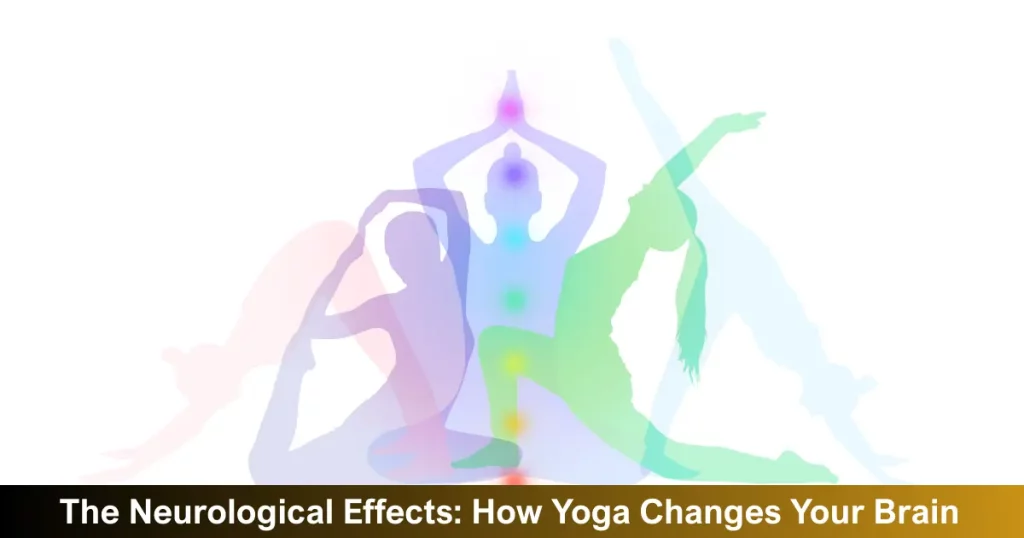Yoga is more than just a physical exercise it’s a holistic practice that nurtures both your mind and body. From improving mental clarity to boosting physical strength, yoga’s benefits are deeply rooted in science. But how exactly does yoga affect your brain and body? We spoke with Rashmi Ghatge, Director at Paramyoga, to unravel the fascinating science behind yoga and its transformative effects.
How Yoga Boosts Brain Power: The Cognitive Benefits

Yoga is renowned for sharpening the mind. Regular practice has been shown to:
- Enhance Memory and Recall: Mindfulness and meditation in yoga help reduce distractions, making it easier to remember and process information.
- Increase Focus and Concentration: By training your attention on breath and movement, yoga improves your ability to concentrate on tasks.
- Strengthen Executive Function: Yoga cultivates mental discipline, supporting better decision-making, problem-solving, and strategic thinking.
- Reduce Stress and Anxiety: Yoga lowers cortisol (the stress hormone), creating a calmer, more focused mind.
- Promote Emotional Regulation: Mindfulness practices in yoga help you manage emotions and respond to challenges with resilience.
- Sharpen Present-Moment Awareness: Yoga encourages you to stay present, reducing mental clutter and enhancing cognitive clarity.
Bottom line: Yoga is a powerful tool for mental performance, helping you stay sharp, focused, and emotionally balanced.
The Neurological Effects: How Yoga Changes Your Brain

Modern research confirms that yoga can actually reshape your brain:
- Increased Gray Matter: Studies show that yoga practitioners have more gray matter in areas linked to memory, learning, and emotional control.
- Better Brain Connectivity: Yoga enhances communication between different brain regions, improving overall brain function.
- Boosted Neuroplasticity: Yoga encourages the brain to form new neural connections, which is vital for learning and recovery.
- Higher GABA Levels: Yoga raises levels of gamma-aminobutyric acid (GABA), a neurotransmitter that calms the mind and reduces anxiety.
- Lower Cortisol: Regular practice keeps stress hormones in check, protecting your brain from the effects of chronic stress.
- Balanced Nervous System: Yoga helps regulate the autonomic nervous system, balancing “fight or flight” with “rest and digest.”
- Reduced Inflammation: By lowering inflammation markers, yoga protects the brain from damage linked to aging and disease.
- Improved Pain Management: Yoga changes how the brain processes pain, making it easier to manage chronic pain conditions.
Yoga for Holistic Health: Mind and Body Benefits

Yoga is unique because it addresses every aspect of well-being:
Mental and Emotional Health:
- Reduces stress and anxiety
- Improves mood by boosting serotonin and endorphins
- Enhances sleep quality
- Promotes mindfulness and self-awareness
- Supports those with depression and emotional challenges
Physical Health:
- Increases flexibility and strength
- Improves balance and coordination
- Supports healthy posture
- Relieves chronic pain
- Boosts immune function
- Aids in weight management
- Enhances cardiovascular and respiratory health
Yoga creates a strong mind-body connection, making you more aware of your body’s needs and responses.
Elevating Your Quality of Life

By integrating physical, mental, and emotional practices, yoga can significantly improve your overall quality of life. Practitioners often report:
- More energy and less fatigue
- Stronger immunity
- Better sleep and recovery
- Greater self-awareness and personal growth
- Enhanced social well-being and sense of community
Yoga’s holistic approach helps you live a more balanced, fulfilling, and healthy life.
Long-Term Benefits: What Happens When You Stick With Yoga?

Over time, the positive effects of yoga only grow stronger:
- Sharper cognitive skills (memory, attention, planning)
- Structural brain changes (more gray matter, improved neuroplasticity)
- Lasting emotional resilience
- Sustained physical strength, flexibility, and balance
- Lower risk of chronic diseases (heart disease, diabetes, arthritis)
- Reduced inflammation and improved immune response
- Healthier weight and metabolism
- Balanced hormones and improved mood
Regular yoga practice is an investment in your long-term health and happiness.
- Why Your Mind Wanders During Meditation
- Beginner Yoga Poses for Stress Relief
- Yoga vs Gym: Which is Better for Mental Health?
Frequently Asked Questions (FAQs)
Q1: How often should I practice yoga to see results?
A: Even practicing yoga 2-3 times a week can yield noticeable benefits for your mind and body. Consistency is key!
Q2: Is yoga suitable for beginners?
A: Absolutely! There are many beginner-friendly classes and poses. Start slow and listen to your body.
Q3: Can yoga help with anxiety and depression?
A: Yes, research shows yoga can lower stress hormones and boost mood-enhancing neurotransmitters, making it effective for managing anxiety and depression.
Q4: Does yoga improve physical fitness?
A: Yes, yoga increases strength, flexibility, balance, and endurance, contributing to overall fitness.
Q5: Are the benefits of yoga backed by science?
A: Yes, numerous studies confirm yoga’s positive effects on brain structure, stress reduction, pain management, and overall well-being.
Q6: Can yoga help with chronic pain?
A: Many people find relief from chronic pain conditions like back pain, arthritis, and headaches through regular yoga practice.
Q7: Is yoga only about stretching?
A: No, yoga also includes breathwork, meditation, and mindfulness, all of which contribute to its holistic benefits.
Q8: How does yoga affect sleep?
A: Yoga helps regulate sleep patterns, reduces insomnia, and improves sleep quality by calming the mind and body.
Final Thoughts
Yoga is a science-backed practice that transforms both mind and body. Whether you’re seeking mental clarity, emotional balance, or physical health, yoga offers a holistic path to well-being. Start your journey today and experience the profound benefits for yourself!

